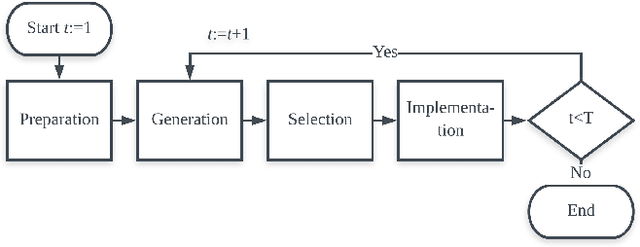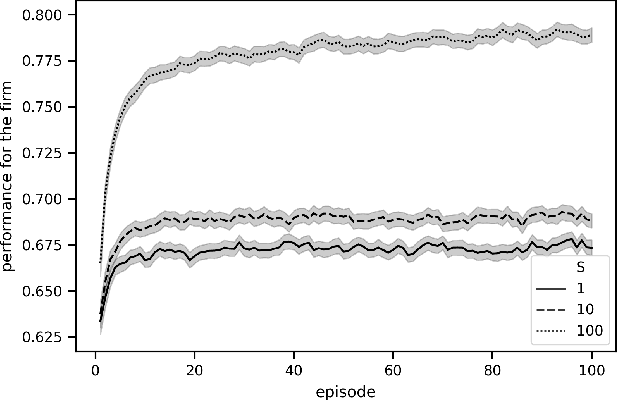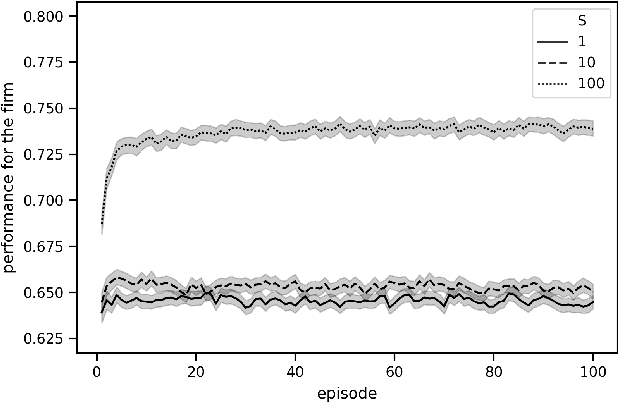On the Effectiveness of Minisum Approval Voting in an Open Strategy Setting: An Agent-Based Approach
Paper and Code
Sep 25, 2020



This work researches the impact of including a wider range of participants in the strategy-making process on the performance of organizations which operate in either moderately or highly complex environments. Agent-based simulation demonstrates that the increased number of ideas generated from larger and diverse crowds and subsequent preference aggregation lead to rapid discovery of higher peaks in the organization's performance landscape. However, this is not the case when the expansion in the number of participants is small. The results confirm the most frequently mentioned benefit in the Open Strategy literature: the discovery of better performing strategies.
* 5 pages, 3 figures; ; added literature review section, expanded and
strengthened introduction and conclusion, grammar and formatting
 Add to Chrome
Add to Chrome Add to Firefox
Add to Firefox Add to Edge
Add to Edge